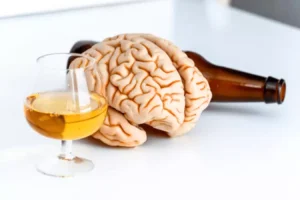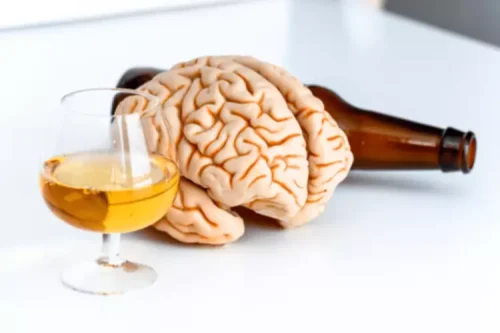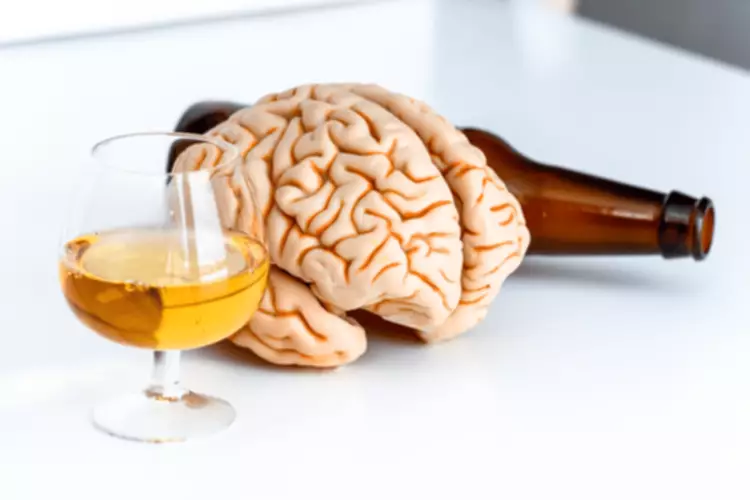You’ll likely find it easier to handle emotions and stress—and with better sleep, your cognitive function and emotional regulation improve. Over time, this leads to higher self-esteem, a brighter outlook on life, and an overall sense of well-being. Drinking alcohol can seriously affect your physical and mental health. From liver damage and heart problems to a higher risk of depression and anxiety, this alcohol can truly take a toll on your well-being. The good news is that quitting alcohol can set you on a path to better physical and mental health, stronger relationships, and a greater sense of control over your life. Alcohol withdrawal syndrome is a clinical diagnosis that relies heavily on the history and physical, which is also used to gauge disease severity.
Activate Calm: How Your Body Handles Stress Without Alcohol
Mental rehearsal helps you pre-program your mind, so when stress arises, you naturally turn to these techniques instead of old habits. The mind and body are deeply connected when it comes to relaxation. Benson’s research shows that when the relaxation response is activated, it’s not just your mind that benefits—your entire body responds. Your heart rate slows, your muscles relax, and stress hormones decrease. While alcohol may offer temporary relief, it doesn’t engage this powerful mind-body connection in the same way.
Free Healthbeat Signup
It’s based on several factors, including how long, how much, and how regularly you have been drinking alcohol. The severity of alcohol withdrawal is categorized into three stages. Not all people progress through all of the stages of alcohol withdrawal. Talk to a doctor if you have developed a dependence on alcohol and want to stop drinking. They can offer advice on treatment options and supervise your withdrawal.
More on Substance Abuse and Addiction
Likewise, medication-assisted treatment (MAT) options like methadone and buprenorphine can help people who are dependent on opioids to discontinue their opioid use in favor of these long-acting, abuse-resistant medications. Fortunately, during medical detox programs, these symptoms are routinely screened for, and clients can be supported with counseling sessions, peer support, and meditation classes or other wellness activities. Rehab centers that provide dual diagnosis care can identify when depression or other mental health issues are simply a result of withdrawal or indicative of an underlying mental health disorder requiring treatment. AWS is more common in adults, but children and teenagers who drink excessively may also experience the symptoms.
Maintaining a calm and comfortable environment, staying hydrated and avoiding stimulants like caffeine is also helpful. If you have the shakes, medical intervention is typically necessary, as shakes can be a sign of more serious withdrawal complications. One important thing to do when addressing alcohol withdrawal is to distance yourself from enablers and any drinking advocates that are in your life.
Unlocking Your Body’s Natural Stress Relief: The Relaxation Response
- These results indicate that the adjunctive use of enteric microbiota capsules with ACEI/ARB therapy has a proteinuria-lowering effect in IgAN patients.
- Make sure there are limited interruptions so you can focus on resting.
- Because of these symptoms, you won’t be able to make decisions about your medical care.
- For most people, alcohol withdrawal symptoms will begin to subside after 72 hours.
For this reason, you should always talk to your doctor before stopping or reducing your substance use. Anyone that thinks they are dependent on alcohol should consider speaking to a doctor. In extreme cases, the brain can have problems regulating breathing and circulation.
For those with alcohol use disorder, withdrawal is just the first (but very important) step on a long journey to recovery. These first few weeks are critical because they are when the risk of relapse is highest. During the 12- to 24-hour time frame after the last drink, most people will begin to have noticeable symptoms. These may still be mild, or the existing symptoms might increase in severity. Over time, however, the body builds a tolerance to alcohol, and a person may have to drink more and more to get the same feeling. Meanwhile, the brain is producing more and more neurotransmitters, making a person further imbalanced.
- A good diet won’t lessen withdrawal effects but will support your body’s ability to deal with them.
- Proportional incidence was calculated as the incidence of hospitalizations involving AWS divided by the incidence of all-cause hospitalizations.
- Your healthcare provider will determine the right treatment plan for you.
- To learn more about when you may need help for alcohol misuse, visit our informational page on helping someone with an alcohol use disorder or take our alcohol misuse self-assessment.
- Acupuncture has been shown to provide some relief for opiate withdrawal.
- A private oceanside center treating addiction and co-occurring mental health with tailored plans, evidence-based care, fun beach activities, and support for working professionals.
- Lemons, cinnamon, and cumin extract have all been shown to reduce symptoms of nausea and vomiting.
- This lowers your chances of liver diseases like cirrhosis and fatty liver.
- Techniques such as mindfulness, meditation or gentle exercise might help alleviate stress.
- Alcohol withdrawal symptoms range from mild but annoying to severe and life-threatening.
- Even after years of heavy alcohol use, the liver has a remarkable regenerative capacity1 and, following alcohol removal, can recover a significant portion of its original mass and function.
For mild alcohol withdrawal that’s not at risk of worsening, your provider may prescribe carbamazepine or gabapentin to help with symptoms. Other medications may also be used to manage specific withdrawal symptoms. These may include anti-anxiety medications, anticonvulsants, antipsychotics, or other drugs designed to treat nausea or sleep problems. But abruptly quitting substances such as benzodiazepines or alcohol can be potentially dangerous, so always consult your doctor to come up with a detox plan.
Try to remember that you don’t have to feel shame about your experience. AUD is very common, affecting an estimated 76.3 million people worldwide. By reading up on alcohol withdrawal and learning more about treatment and self-help options, you’ve taken an important step toward recovery. If you drink only once in a while, it’s unlikely that you’ll have withdrawal symptoms when you stop.
For some, these symptoms may peak within the first 24–48 hours after alcohol cessation, but they may continue cure for alcohol withdrawal symptoms after this point in others. And while symptoms generally improve within 5 days, some may experience prolonged symptoms. Symptoms outside of the anticipated withdrawal period or resumption of alcohol use also warrants referral to an addiction specialist or inpatient treatment program. Misusing alcohol, including binge drinking and heavy alcohol use, puts you at risk for alcohol withdrawal syndrome. Typically, people who develop an AUD are at higher risk for alcohol withdrawal syndrome.




